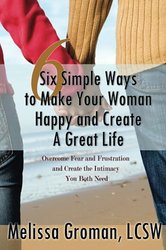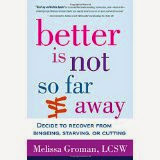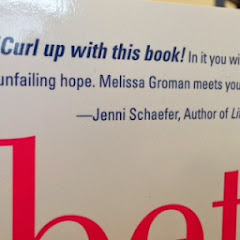It sounds absurd on the surface. That we would like our pain. Like it and want it. But sometimes below the surface, in a place we are not so directly in touch with, our pain functions somehow for us. It may keep us feeling safe in some way, immersed in what is familiar to us. Or attached to a person, a situation or a way of being that we don't really know how we could live without. Sometimes, we get so accustomed to the status quo, or to our sadness, our hurt, our anger, that we tell ourselves there is no other way to feel, no other way to be or to do things.
We may even want to believe this on some level, because the idea of being or feeling differently seems so far fetched, so out of character or requiring of so much work and commitment that we just stay where we are, telling ourselves that things are what they are.
Acceptance of our feelings and of other people's character and of life on life's terms is often the starting point of healing, and of new feelings, new ideas, new ways, new hope. But sometimes we rest on this because it's too frightening to push ourselves to go deeper and to study and be curious about how the status quo works for us.
Sometimes, in relationships, for example, keeping a status quo of fighting and resentment and animosity - real as those bad feelings and hurts are - can serve to keep us from waking up to new or sleeping parts of ourselves, or can help us remain loyal to a parent, to a past love, to some idea or philosophy we have, or to protect us from a kind of intimacy or vulnerability we are vaguely aware and frightened of.
Looking at why we hold on to the status quo can help us live more conscious lives. Since we mostly hold on in unconscious ways, this takes some unpacking, some talking and some gentle curiosity. We may have to look at how we back away or lash out when we are angry and what effect that has on our ability to be close. Do we infuriate people? Push them away? Or lead with our resentments and entitlements? How aware are we of the effect we have? And what effect do we want to have on our partners and on our own sense of self?
There are lots of layers, and lots of possibilities. Sometimes we have to lean in to the practical advice of using the right words and communication skills. Sometimes we have to shine an analytic light on the situation and dig around in our psyches to see what keeps us in feeling states and in situations that both work and don't work, and what if anything we might want to address in an effort to live and feel genuinely better.












